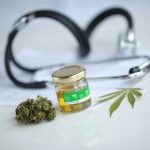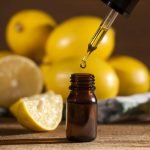Naturopathic Perspective
Michael Traub, ND, DHANP, FABNO
Despite the US Food and Drug Administration (FDA)’s June 2007 publication of Good Manufacturing Practices (GMPs) for dietary supplements1 and an effective date of compliance with such guidelines in August 2010, there continues to be a huge problem with quality control and quality assurance issues in the natural product industry. This is due to the FDA’s inability to enforce these regulations, as well as to manufacturers either not following GMPs or making half-baked claims that they do.
Requiring manufacturers, not the FDA, to define quality specifications for their products and to guarantee that the finished products meet those specifications will not assure adequate improvement in the quality of dietary supplements in this country. In this “honor system,” some companies will continue to make a good faith attempt. Many others will continue to do a pitiful job. There are an estimated 1500 natural product manufacturers in the United States, constituting a $54.41 billion industry in 2016.2 The majority of them do very little or no quality-assurance testing, making a “certified GMP” logo on a product label essentially meaningless.
Putting the Industry on Display
As clinicians, we have an ethical responsibility to be certain that the products we prescribe to our patients contain exactly what is stated on the label and nothing else. In this environment of economic adulteration, contamination, and counterfeit ingredients, we cannot afford to accept claims of quality – or blindly trust quality “certifications” – without careful scrutiny of the actual quality practices that apply to the specific product. The FDA has left us to do this vital work ourselves.
I have had the privilege of visiting most of the natural product manufacturing facilities that provide the products I recommend to my patients. I have met their laboratory and scientific teams, inspected their raw materials, equipment, and Standard Operating Procedures, discussed their product development, and evaluated their end-product quality assurance procedures. Recommending high-quality natural products is as important to me as the evidence basis for their safety and efficacy.
Fortunately, we also have some help from the trade organizations. On April 24, 2017, the Council for Responsible Nutrition (CRN) – the leading trade association in the industry – launched an online product registry called “Supplement OWL” (Online Wellness Library). Individual companies and their trade associations in the industry are working together to create the registry that will help increase transparency and accountability in the marketplace. The registry allows viewers to search, sort, examine, and evaluate labels and other product information to make better, informed choices. As CRN says, “If daylight is indeed ‘the best disinfectant,’ then the Supplement OWL helps to clean up the industry by putting it on display.” (See: www.SupplementOWL.org)
AHPA’s Contribution
On February 5, 2018, the American Herbal Products Association (AHPA) submitted nearly 100 pages of comments to the FDA Center for Food Safety and Applied Nutrition (CFSAN), identifying numerous ways to improve regulations, guidance documents, and enforcement practices to protect public health more effectively and efficiently.3 (See: https://tinyurl.com/yc7egt23)
AHPA’s comments, which addressed a wide range of regulatory issues impacting food and supplement companies, were submitted in response to the FDA’s September 8, 2017 request for help in identifying existing regulations and paperwork requirements that could be modified, repealed, or replaced, to achieve meaningful burden reductions while allowing the FDA to achieve its public health mission and fulfill statutory obligations. The FDA’s September notice was in response to the Trump Administration’s Executive Order 13771 (“Reducing Regulation and Controlling Regulatory Cost”) and Executive Order 13777 (“Enforcing the Regulatory Reform Agenda”).4
AHPA’s recommendations seek to improve regulatory requirements in several areas, including:
- Regulations for conventional food and dietary supplement operations and farms
- Dietary supplement manufacturing requirements
- Labeling requirements for foods and dietary supplements
- Pesticide regulations
- New dietary ingredients (NDIs)
The comments also recommend several changes to help the industry better understand and comply with cGMP requirements, including requiring FDA facility inspectors to cite the underlying cGMP regulations when making observations listed in Form 483s issued to facilities after an inspection.
AHPA requested several changes designed to improve consumer information on dietary supplement product labels, including allowing companies to reference scientifically accurate information in published literature even when it discusses the diagnosis, treatment, cure, or prevention of a disease, so long as the supplement itself is not making drug claims. AHPA also encouraged the FDA to revise its policy of restricting implied disease claims, since it has stifled the ability of marketers to make true statements describing “the role of a nutrient or dietary ingredient intended to affect the structure or function in humans,” characterizing “the documented mechanism by which a nutrient or dietary ingredient acts to maintain such structure or function,” or describing “general well-being from consumption of a nutrient or dietary ingredient,” as permitted by the Dietary Supplement, Health and Education Act (DSHEA).
AHPA also encouraged the FDA to work with the Environmental Protection Agency to revise pesticide regulations and enforcement in a manner that maintains protections for consumers and the environment while also reducing burdens on food companies that use specialty or minor crops such as herbs and spices.
AHPA recommended that the FDA immediately withdraw or significantly revise the current NDI guidance document because it is not consistent with the statute and is misleading to the regulated industry. AHPA also urged the FDA to discontinue its recent practice of redacting almost all the information in submitted NDI notifications, in order to provide real-world guidance for future submitters.
On May 3, 2018, the Natural Products Association (NPA) announced the FDA had decided to delay its Nutrition and Supplement Facts Labeling rule.5 (See: https://tinyurl.com/ybdtkuby)
Closing Comments
These issues addressed by the CRN, NPA, AHPA, and other natural product organizations are only the tip of the iceberg of the complex world of dietary supplement regulation, quality control, and quality assurance, including botanical authentication, DNA barcoding, and adulteration. For further information, interested readers can take advantage of a 2-year series of articles written by Rick Liva, ND, Joe Pizzorno, ND, and Michael Levin in Integrative Medicine: A Clinician’s Journal.6 (See: https://tinyurl.com/ycxapoft)
I will be addressing this subject in more depth in a 2-hour workshop at the Integrative Dermatology Symposium on October 21, 2018 in Sacramento, CA. Joining me as co-presenter will be my son, James Traub, member of the Board of Trustees, American Herbal Products Association, and QA Director for Herbalife International.
I urge you to attend this first-ever integrative dermatology conference. (For information: https://integrativedermatologysymposium.com/)
References:
- US Food & Drug Administration. Current Good Manufacturing Practices (CGMPs) for Dietary Supplements. Last updated February 27, 2018. FDA Web site. https://www.fda.gov/Food/GuidanceRegulation/CGMP/ucm079496.htm. Accessed May 17, 2018.
- The Statistics Portal. Natural product dollar sales in the United States from 2013 to 2016 (in billion U.S. dollars). Available at: https://www.statista.com/statistics/492667/dollar-sales-natural-products-united-states/. Accessed May 17, 2018.
- American Herbal Products Association. AHPA recommends regulatory improvements in comments submitted to CFSAN. February 5, 2018. AHPA Web site. https://tinyurl.com/yc7egt23. Accessed May 16, 2018.
- Food and Drug Administration. 21 CFR Chapter 1. III. References. Federal Register. September 8, 2017;82(173):42499. Available at: https://www.gpo.gov/fdsys/pkg/FR-2017-09-08/pdf/2017-19031.pdf. Accessed May 17, 2018.
- Natural Products Association. News Release: NPA Declares Victory Following FDA’s Decision to Delay Costly and Burdensome Nutrition and Supplement Facts Labeling Rule, Saving Consumers Hundreds of Millions of Dollars. May 3, 2018. NPA Web site. https://tinyurl.com/ybdtkuby. Accessed May 17, 2018.
- Quality Assurance. Integrative Medicine: A Clinician’s Journal. IMCJ Web site. https://tinyurl.com/ycxapoft. Accessed May 20, 2018.
Image Copyright: <a href=’https://www.123rf.com/profile_9dreamstudio’>9dreamstudio / 123RF Stock Photo</a>
 Michael Traub, ND, DHANP, FABNO, graduated from NCNM in 1981 and completed a residency there in Family Practice and Homeopathy. He was recognized for his many years of service in the AANP, including serving as President from 2001-2003, and being honored with the 2006 Physician of the Year Award. Dr Traub has been the medical director of Lokahi Health Center, in Kailua Kona, for the past 32 years, and is a fellow of the American Board of Naturopathic Oncology. He serves on advisory boards for Dermveda, Kamedis, Nutritional Fundamentals for Health, Gaia Herbs, and Nordic Naturals.
Michael Traub, ND, DHANP, FABNO, graduated from NCNM in 1981 and completed a residency there in Family Practice and Homeopathy. He was recognized for his many years of service in the AANP, including serving as President from 2001-2003, and being honored with the 2006 Physician of the Year Award. Dr Traub has been the medical director of Lokahi Health Center, in Kailua Kona, for the past 32 years, and is a fellow of the American Board of Naturopathic Oncology. He serves on advisory boards for Dermveda, Kamedis, Nutritional Fundamentals for Health, Gaia Herbs, and Nordic Naturals.





